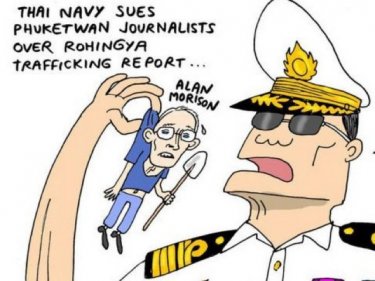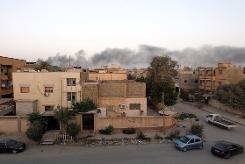Maung Kyaw Nu
-------
M Shahidul Haque said they would start the process of taking back 2,415 of its nationals it verified earlier.The decision was conveyed at the secretary-level talks on Sunday.
Myanmar's Deputy Foreign Minister U Thant Kyaw led his side to the meeting, known as 'Foreign Office Consultation'.
Foreign Secretary Haque told journalists after the meeting both sides agreed on a number of measures to take the relations forward.
The meeting was held in "open, frank, and cordial" manner that he said indicated "greater understanding between the two countries".
Myanmar side was not present at the briefing.
The Rohingya refugee issue has been the main irritant in the relations.
Bangladesh gave shelter to thousands of refugees who fled the Rakhine province after sectarian clashes over the years.
The UN refugee agency, UNHCR, put the number in Bangladesh at over 200,000 with 30,000 documented refugees living in two government-run camps –the Kutupalong and Nayaparha – within two kilometres of the Myanmar border.\
Some estimates suggest more than 500,000 are living outside the camps in Bangladesh.
According to the foreign ministry, Myanmar took back more than 200,000 of their nationals between 1991 and 2005.
The process has since stalled and Myanmar even declined to recognise those living inside Bangladesh as its nationals.
According to media reports, they did not even count Rohingya in their census.
The foreign secretary, however, believed that by agreeing to take back them again "Myanmar acknowledged that they are their citizens".
He said both sides wanted to strengthen the relations.
"It's (start of repatriation) a breakthrough," he said.
He said a joint working group with members from both sides and international organisations would work on the repatriation process.
Bangladesh sought specific timeline from Myanmar on taking back its nationals in the meeting.
The foreign secretary, however, would not make any "hypothetical comment" on whether Myanmar would take back all of its nationals.
He said they had given the number of Myanmar nationals living in Bangladesh during the meeting.
Both sides also decided to form a joint commission to discuss bilateral issues at the foreign ministers level.
Secretary Haque said the Myanmar foreign minister would visit Bangladesh in January for the meeting.
He said Bangladesh also floated the idea and gave them the draft proposal of "a broader framework" between the two countries to discuss all issues.
There would be eight components under the 'Framework Arrangement on Trust and Cooperation for Development', he said.
These are strengthening the trust; security and cooperation dialogue; trade and connectivity; energy, environment and natural disaster; agriculture and rural development; education, health and culture; sub-regional cooperation; and cooperation in the Bay-of-Bengal.
"It'll be a common platform to discuss the issues," he said.
He said it would be similar to those that already Bangladesh had with India and America.
The meeting also agreed to release prisoners of both sides.
Official figures show 190 Bangladeshis are languishing in Myanmar jails, while the number is 110 of Myammar nationals in Bangladesh prisons.
The import of gas from the Shwe gas field in the Rakhine state has also been discussed.
A consortium of China, India, Myanmar, and South Korea's Daewoo has developed the field and about 800 km of pipeline laid to take the gas to Kunming, in China.
Bangladesh has already got a positive response from China for the gas supply while officials said they would try to convince the others.
The foreign secretary said Myanmar also made it clear that they would have no problem in giving gas to Bangladesh provided there was surplus and other partners agreed.
He said the four-hour meeting also felt the home secretaries of the two countries must meet to discuss border issues.
"We all agreed to strengthen the relations," he said.
Despite decades-old irritants in relations, both Bangladesh and Myanmar work actively at the Bay of Bengal Initiative for Multi-Sectoral Technical and Economic Cooperation (BIMSTEC) grouping.
The talks on the proposed economic corridor under the Bangladesh-China-India-Myanmar (BCIM) formation were underway.
A new idea of forming a Bay community with Bangladesh, India and Myanmar, particularly after the resolution of the maritime boundary dispute, is also gaining ground.
Bangladesh is planning road connectivity between Chittagong and Kunming, capital of China's Yunnan province, through Myanmar.
The foreign secretary said they had discussed the revival of a committee for this road link.
"We'll also look into the possibility of one more route (of road connectivity)," he said.
They also decided to ratify the treaty signed in 1999 for border demarcation along the river Naf.
The Secretary said they felt it "extremely important" to have people-to-people contacts.
Myanmar is interested in offering tourism packages with Bangladesh and Kunming.
They renewed the cultural exchange agreement that expired in 2012 for the next five years.
The foreign secretary said Myanmar would send a team shortly to learn from Bangladesh's agriculture, fishery and livestock sectors.
"Overall, I would say it's a breakthrough in bilateral relations," he said.
Maung Kyaw Nu, President ,BRAT • a minute ago
Burma should have to accept all the Rohingya refugees aproximately six hundred thousands not only 2415 . The Rohingyas are really a big burden for poor Bangladesh. Bangladesh leadership must stronger as like as Prisident Ziaur Rhaman. In 1978 ,Zia warned U Ne Win on telephone that if Rohingya were not taken back he would talked to Gaddafi to arm them and send back into Burma . Within one week ,General Ne Win sent his Deputy Foreign Minister Myint Maung to Dhaka to arrange taken back all two hundred thousands Refugees . In 1979 all were taken back except a few who fled into villages and merged with the local people.












